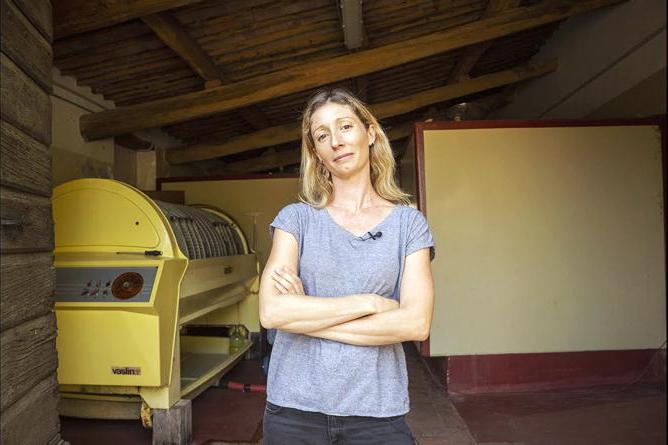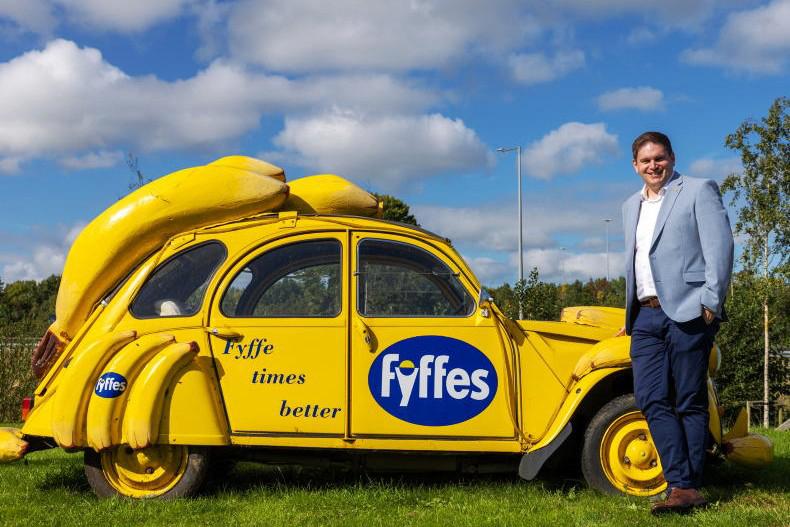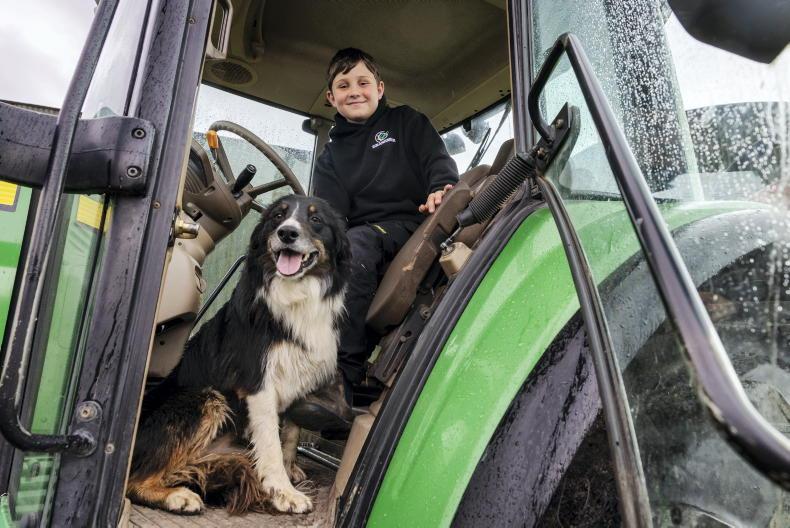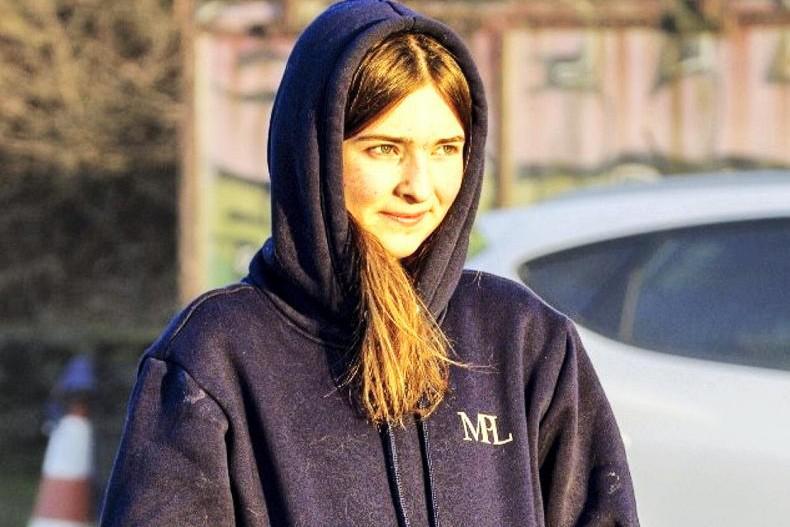I’m a young farmer – for a few more months – from Italy. I run my family’s winery in Tuscany, a historic property that has been in my father’s family for two centuries. It’s a farmhouse with a diverse type of agriculture; wines, olives for oil and grains for flour and pasta. We were one of the founding members of the association of wine producers here in 1927 but it was a wine for quantity use, for farmers’ or farmworkers’ consumption or sold in bulk. My parents in the ’70s decided to start doing quality wine and in 2008 asked me to take over.
But I had no proper training. I had not studied agronomy, oenology or business, which are three things that would have been absolutely fundamental to have in my toolkit. So I slowly learned while living in sync with both the vineyard and the cellar.
Quite soon, I also started coming in contact with other young farmers. In the beginning, it was a way to grow out of the loneliness of living on a farm. I was born and raised in Rome, a very social place, so connecting with local farmers gave me a network of people to spend time with. But it also showed me how other young people – investing their lives in farms – had the same problems as me, even if they were in very different sectors. This gave me that sense of wanting to make that part of what I do in my life. To make sure that new farmers don’t have to go through all those struggles, the loneliness, the [lack of] knowledge and the skills that are necessary. It’s living in a reality where the challenges are constantly changing and being equipped to deal with that, understanding that farming is a business and that farming needs to be treated as a business.
We need to train new entrepreneurs in agriculture who have sensibility and sensitivity towards nature and agriculture. You need to have, I don’t want to almost use the word, but, an intimate relationship with nature – understanding its needs and reacting to that. You also need a whole other set of skills that are more focused on business, human resources or managerial.
Adding value
I studied political science and then became a chef. I was very fortunate. The person who was managing the farm understood the benefit of having a young generation come in for the future of the farm. She invested a lot of time in training me. She taught me the basics of chemistry and physics and taught me to use all of the equipment necessary in the field. On the managerial side, I was attracted to any training on agribusiness. I remember doing a course on media skills and communication for agriculture, one on human resources and conflict and soft skills – all to be more equipped in managing the farm.
Because of my culinary training, that idea of experiential – of opening up the doors and doing wine tours, wine classes, dinners and events – was natural. Connecting people to where those wines are coming from is a marketing plus.
I travelled across the world and did a lot of events where I would cook traditional Tuscan food with our wines. I could really see the difference between the events done on the other side of the world and the events done at the winery. The people who actually come to the winery become linked to the place. They understand it, they understand the wines and it makes sense. Fattoria di Petroio [the farm] is known as the place of the rocks. They come, they see the rocks. So it’s not just a brand, it’s a place.
Farm lobby
We recreated a section of Confagricoltura (ANGA), the young farmers’ association for Siena [region] and I became vice president of ANGA in 2015 but decided not to run as president in 2018. I had just had my twins, so I asked to bring my experience to Brussels. I had done a leadership programme for young farmers with the former president of CEJA, Jannes Maes, and he was an inspirational person to me.
I got that same feeling again in Brussels, meeting young farmers from all over Europe. It just exploded in my brain – how incredible it is to bring these people together and have them share their views, their knowledge, their problems and find solutions. This pragmatic and always positive approach is inspiring and engaging.
When the opportunity arose [to become president of CEJA in 2021], I faced myself, I was about to turn 38, which was close to the end of my time as a young farmer. I felt it was something I owed to the community that had helped me so much – to serve, to give back.
We have such a small number of young farmers in Europe and it’s shrinking. That means that it’s not attractive in terms of economics or work-life balance. Solving the problems of young farmers is not a one-answer proposition. The bottom line is that anyone who goes into this career should be able to provide for themselves and for their families. We need to make sure that new farmers can access credit to invest and to create revenue. We need to create more solid business plans, equip farmers with more knowledge and technology and innovation. Equip them with what is necessary to create a farming model that works, that is both economically sustainable and environmentally sustainable.
Read more
Multi-generational farmer frustration
Government ‘absolutely committed’ to rural Ireland – Taoiseach
I’m a young farmer – for a few more months – from Italy. I run my family’s winery in Tuscany, a historic property that has been in my father’s family for two centuries. It’s a farmhouse with a diverse type of agriculture; wines, olives for oil and grains for flour and pasta. We were one of the founding members of the association of wine producers here in 1927 but it was a wine for quantity use, for farmers’ or farmworkers’ consumption or sold in bulk. My parents in the ’70s decided to start doing quality wine and in 2008 asked me to take over.
But I had no proper training. I had not studied agronomy, oenology or business, which are three things that would have been absolutely fundamental to have in my toolkit. So I slowly learned while living in sync with both the vineyard and the cellar.
Quite soon, I also started coming in contact with other young farmers. In the beginning, it was a way to grow out of the loneliness of living on a farm. I was born and raised in Rome, a very social place, so connecting with local farmers gave me a network of people to spend time with. But it also showed me how other young people – investing their lives in farms – had the same problems as me, even if they were in very different sectors. This gave me that sense of wanting to make that part of what I do in my life. To make sure that new farmers don’t have to go through all those struggles, the loneliness, the [lack of] knowledge and the skills that are necessary. It’s living in a reality where the challenges are constantly changing and being equipped to deal with that, understanding that farming is a business and that farming needs to be treated as a business.
We need to train new entrepreneurs in agriculture who have sensibility and sensitivity towards nature and agriculture. You need to have, I don’t want to almost use the word, but, an intimate relationship with nature – understanding its needs and reacting to that. You also need a whole other set of skills that are more focused on business, human resources or managerial.
Adding value
I studied political science and then became a chef. I was very fortunate. The person who was managing the farm understood the benefit of having a young generation come in for the future of the farm. She invested a lot of time in training me. She taught me the basics of chemistry and physics and taught me to use all of the equipment necessary in the field. On the managerial side, I was attracted to any training on agribusiness. I remember doing a course on media skills and communication for agriculture, one on human resources and conflict and soft skills – all to be more equipped in managing the farm.
Because of my culinary training, that idea of experiential – of opening up the doors and doing wine tours, wine classes, dinners and events – was natural. Connecting people to where those wines are coming from is a marketing plus.
I travelled across the world and did a lot of events where I would cook traditional Tuscan food with our wines. I could really see the difference between the events done on the other side of the world and the events done at the winery. The people who actually come to the winery become linked to the place. They understand it, they understand the wines and it makes sense. Fattoria di Petroio [the farm] is known as the place of the rocks. They come, they see the rocks. So it’s not just a brand, it’s a place.
Farm lobby
We recreated a section of Confagricoltura (ANGA), the young farmers’ association for Siena [region] and I became vice president of ANGA in 2015 but decided not to run as president in 2018. I had just had my twins, so I asked to bring my experience to Brussels. I had done a leadership programme for young farmers with the former president of CEJA, Jannes Maes, and he was an inspirational person to me.
I got that same feeling again in Brussels, meeting young farmers from all over Europe. It just exploded in my brain – how incredible it is to bring these people together and have them share their views, their knowledge, their problems and find solutions. This pragmatic and always positive approach is inspiring and engaging.
When the opportunity arose [to become president of CEJA in 2021], I faced myself, I was about to turn 38, which was close to the end of my time as a young farmer. I felt it was something I owed to the community that had helped me so much – to serve, to give back.
We have such a small number of young farmers in Europe and it’s shrinking. That means that it’s not attractive in terms of economics or work-life balance. Solving the problems of young farmers is not a one-answer proposition. The bottom line is that anyone who goes into this career should be able to provide for themselves and for their families. We need to make sure that new farmers can access credit to invest and to create revenue. We need to create more solid business plans, equip farmers with more knowledge and technology and innovation. Equip them with what is necessary to create a farming model that works, that is both economically sustainable and environmentally sustainable.
Read more
Multi-generational farmer frustration
Government ‘absolutely committed’ to rural Ireland – Taoiseach









SHARING OPTIONS